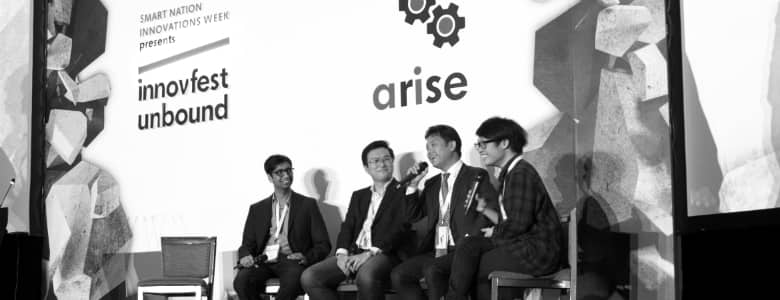Space for innovation

Far above our heads floats a giant junkyard, made up of jettisoned rocket parts, damaged satellites and other assorted space debris.
This collection of rubbish has been accumulating in low Earth orbit for as long as humanity has been trying to launch itself into space, and there is now enough of it out there to pose a real threat to both satellites and manned spacecraft.
So who’s going to clean it up?
The answer might surprise you: a Singapore-based startup named Astroscale, founded by Japanese entrepreneur Mr Nobu Okada, has taken up the challenge. So far, it is the only company in the world to focus on waste management in space.
Up until only a few years ago, the final frontier was largely the domain of national space agencies, said Mr Okada. But thanks to advances in technologies such as artificial intelligence (AI), the Internet of Things (IoT) and 3D printing, costs have been dramatically lowered, and the field is now much more privatised and industry-led.
“A few years ago, people didn’t see space as an industry where startups could play the game; now that is changing,” he added.
Mr Okada shared his vision at a panel discussion at SGInnovate’s AI-themed ARISE event, held as part of Innovfest Unbound 2017 on 3 May.
The panel, titled Robots in Action, was moderated by Mr Justin Lee, co-founder of tech co-working space HackerspaceSG, and comprised Mr Okada; Mr Jiin Joo Ong, CTO of drone technology company Garuda Robotics; and Mr Abishek Gupta, co-founder of robot navigation startup Movel AI.
Technology, the great leveller
The democratising effect of technology has also been seen in the drone industry, said Mr Ong. “You can be a consumer buying a consumer drone, but as long as you pair it with the right software, you can use it to capture useful data.”
Part of what Garuda Robotics does, he added, is to help customers gain insights from this data.
“Robots cannot always be doing menial tasks — you want to make sure they generate some kind of value,” he said.
“The first thing customers always want to know is not how efficient our drones are, but what it is we can do with this data from the sky. How can we use it to transform their businesses?”
According to Mr Gupta, a major reason that robots have not yet penetrated the mass market is that they lack the ability to navigate on their own.
Hence, Movel AI is attempting to develop navigation solutions that will allow robots to become more widely used in homes and in service industries.
The sky’s the limit
Although drone technology has been around for a long time, many industries have not yet explored its full potential, said Mr Ong.
One reason for this is a lack of expertise — people working in sectors such as agriculture or infrastructure management, for example, will have to learn how to operate drones before they can use them to monitor crops or facilities.
In addition, drones can be applied to many non-traditional use cases, which may be hard for some industries to imagine, he said.
Singapore’s National Environment Agency (NEA), for example, now uses drones to inspect rooftop gutters for puddles of stagnant water in which mosquito larvae could breed; previously, inspection was a completely manual process.
As they fly past, the drones also drop payloads of larvicide into the water to kill any wrigglers.
“Drones have been exciting for many years, but we still don’t see the whole sky dotted with them,” said Mr Ong. “A lot of enterprises are still learning how to put the technology to work effectively.”
Passion for the future
“AI is advancing rapidly, but robots will be more helpful when we can get them into our homes to help with cooking, cleaning and various other tasks,” said Mr Gupta.
What is needed, he thinks, is software that will allow robots to be more versatile. “We need to look into solutions that can change the robot’s application layer.”
“That is, even with the same hardware, we can programme the robot to be used in a restaurant or in a hospital.”
Garuda Robotics, said Mr Ong, is developing a technology that will enable drone operators to track and control the machines even if they fly out of their line of sight.
This further expands the possibilities for drones in the future — they might even be used to ferry people to hospitals, he said.
With advances in AI, Astroscale’s spacecraft can be controlled by one person from a single screen, or even from a smart watch, said Mr Okada. But far from taking away jobs, technology has instead accelerated advances in the space industry, allowing it to expand rapidly, he added.
“There are so many new endeavours and initiatives. if you have a passion for space, please join this industry,” he encouraged the audience.
https://www.tech.gov.sg/media/technews/space-for-innovation
